Reviews
Carol Reed
UK, 1949
Credits
Review by Michael Nordine
Posted on 19 May 2011
Source 35mm print
Categories TCM Classic Film Festival 2011
The Third Man’s most idiosyncratic element is its music. Performed on a stringed instrument called the zither, Anton Karas’s off-kilter score plays down, intensifies, and lends an air of strangeness to Carol Reed’s film noir about a man named Holly Martins who arrives in Vienna to immediately discover that his friend (and presumed host) Harry is dead. The many revelations of The Third Man’s dark plot require Martins to traverse the alleys and back rooms of the central European city in which he now finds himself. All the while, the zither plays on as if to tell us something Martins can’t: that which grabs attention is often a diversion, and things that go unnoticed warrant a second look.
Martins, an author who bears little resemblance to the cowboys who populate his pulp novels, is constantly reminded that he’s in over his head as he launches headlong into an inquiry concerning Harry’s death. He carries on nevertheless. Martins is something of an idealist with an innate ability to think on his feet when he arrives in Vienna, and Reed charts his descent into cynicism with an evenhanded precision. Much has been made of this initial idealism; the original, studio-sanctioned release of the film featured an opening narration by Martins that’s decidedly more optimistic than the version Reed had in mind (and recorded himself). Subsequent releases have opted for the latter, returning The Third Man to the realm of pessimism in which it was birthed. Reed doesn’t pile on sorrow needlessly so much as highlight its presence in both the mundane and heightened aspects of daily life.
An actress named Anna finds herself in a position not unlike that of Martins: she, too, is often placed in situations that force her to play-act and go along with the dangerous elements compelling her to hide her true self. “I don’t play tragedy,” Anna reveals, an ironic admission that says more of Reed’s film than it does of her acting. For one, this isn’t true, as The Third Man is not lacking in tragic elements. Few of the film’s narrative threads resolve themselves with any sort of catharsis, and gloom abounds. Likely Anna’s preference for comedy has much to do with the darkness of her life, likening it to a professional escape.
Not without reason, Martins is suspicious of the official story regarding Harry’s death from the very first, and is repeatedly forced to contend with figures who are reluctant to get involved out of either genuine haplessness or deliberate obstructionism. “What’s the good of another post-mortem?” Martins is asked at one point; it’s a valid question. Though death carries uncertainty with it, knowledge just as often brings pain. The more Martin uncovers, the less sure he seems of his pursuit to find the real truth. That he still needs to know regardless of whether he’ll like what he hears - to say nothing of the danger his curiosity places him in - is what makes him, if not quite a hero, then certainly a passable moral compass for a film steeped in corruption. Martins receives many warnings to nip his investigation in the bud, none of which is as foreboding as the following:
Death’s at the bottom of everything, Martins. Leave death to the professionals.
Nearly everyone in The Third Man is embroiled in one shared lie or another, many of which are repeated often enough to be accepted as truth by all who hear them. This epistemological crisis is similarly present in the revelation of the significance of the film’s title. At the time of Harry’s death, three men are said to be seen carrying his body across the street: one named Kurtz, another named Popescu, and a third whose identity is unknown. The central mystery of this “third man” comes to encapsulate the uncertainty permeating Reed’s film. Many contradict the notion that there was even a third man present, others argue over who it might have been, and others still consider it a moot point. Even the questions raised in The Third Man that lead to dead ends uncover truths of their own along the way, however, and this is no exception. The truth is often what one least expects it to be, and the ability to cope with the seemingly unbelievable is a dividing line between Reed’s characters.
Post-World War II Vienna was separated into four zones - American, British, Russian, French - with an intermingled center. This subdivision makes the setting feel both compartmentalized and cosmopolitan. Likewise, Reed’s cast of characters are continually separate from one another even at their most intimate. People who’ve lived through such hardships as war and the murder of a loved one put up shields, often with the dual effect of protecting them from harm and preventing them from connecting meaningfully with the people around them.
Nearly every facet of the film is in keeping with this guarded mentality. Given The Third Man’s post-war climate, it’s appropriate that Reed likens the carrying out of ill deeds in his film to the banality of evil. “I’ve done things that seemed unthinkable before the war,” says one man whose transgressions are dwarfed by more than one other character in the film. But glimmers of hope are present as well and, as evidenced by a now-classic line involving bloodshed and cuckoo clocks, Reed makes it clear that good can also emerge from hardship.
More TCM Classic Film Festival 2011
-
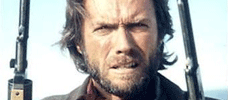
The Outlaw Josey Wales
1976 -
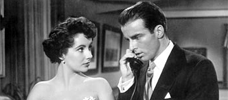
A Place in the Sun
1951 -
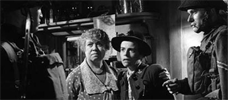
Went the Day Well?
1942 -
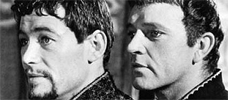
Becket
1964 -
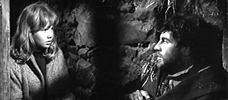
Whistle Down the Wind
1961 -
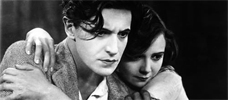
The Constant Nymph
1943 -
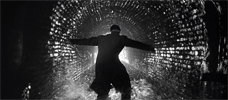
The Third Man
1949
We don’t do comments anymore, but you may contact us here or find us on Twitter or Facebook.



